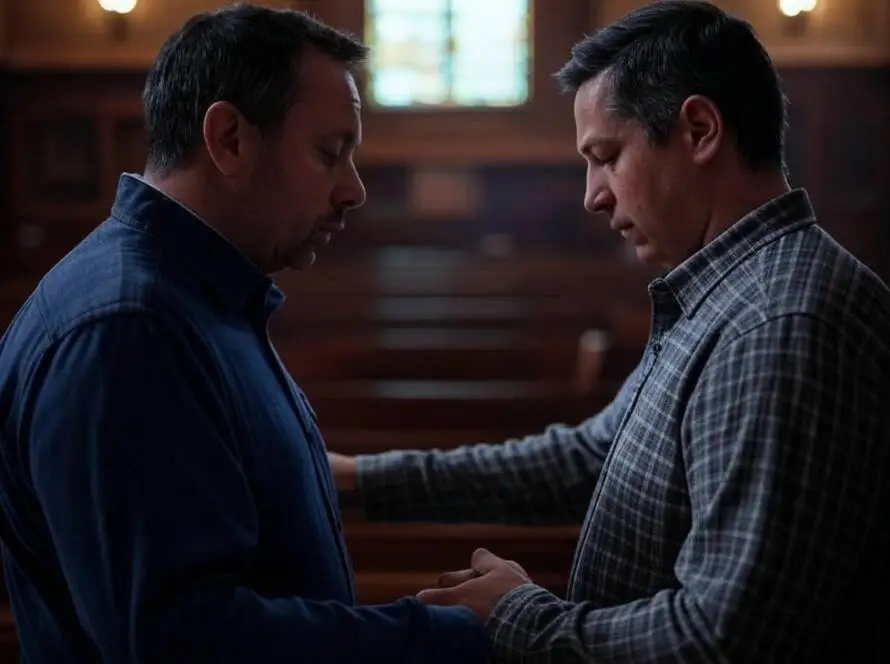Have you ever been part of a Church where everyone is doing what is good in their own eyes? Just like the Israelites have done through the book of Judges and on… Have you ever seen a Church body where God’s word is not the sole authority but men’s opinions are? Consequently a place where practically all sorts of sins like pride, lies, love of money, fornication, adultery, anger, covetousness are being rampant, tolerated and not dealt with. Yes, I have attended such churches. But let me say that what I have just described above there is not a true church, based on the biblical definition of the word.
Though there is not a perfect or sinless church body on earth, for we have not yet attained our final glorification; but a sound and biblical church is one striving to be a pure and holy. Does that mean a sound church will be without sin or impurity? No. But it does mean that a sound church walks in sanctification, faithful to practice biblical church discipline, therefore protects the membership from the influence of sin and the infiltration of false doctrine.
Church discipline
It is the responsibility of the church leaders to protect the flock just as it is the charge of the members to watch over one another. This is part of what it means to love one another. The scriptures also teach us that church leaders are responsible before God for the flock and its spiritual condition. They will give account directly to God for those whom He has put under their care (James 3:1; Matt. 12:36). Practicing church discipline within the church is crucial. It is an act of obedience to the Lord just as any other command in the holy scriptures. Therefore not obeying this command is a sin committed by the pastor and the Christian congregation.
The proper form for this discipline is laid out for us in the Scriptures. The Bible tells us:
\”Moreover if your brother sins against you, go and tell him his fault between you and him alone. If he hears you, you have gained your brother. But if he will not hear, take with you one or two more, that “by the mouth of two or three witnesses every word may be established.” And if he refuses to hear them, tell it to the church. But if he refuses even to hear the church, let him be to you like a heathen and a tax collector.\” (Matthew 18:15-17)
\”Brethren, if a man is overtaken in any trespass, you who are spiritual restore such a one in a spirit of gentleness, considering yourself lest you also be tempted. Bear one another’s burdens, and so fulfill the law of Christ. For if anyone thinks himself to be something, when he is nothing, he deceives himself \” (Galatians 6:1-3).
The process of discipline given in these texts tell us that it is the responsibility of those in the church to care for one another by being willing to admonish and confront, in absolute love, sin which is not being properly dealt with in the life of the church. The simple steps are as follows :
If any member of the church sins
1. He is to obey the Lord and heed his conscience by repenting and being reconciled to God and to anyone else he has sinned against (1 John 1:9; Matt. 5:23-24; James 5:16).
2. If he does not repent, he is to be reproved in private (Matt. 18:15).
3. If he still does not repent, he is to be reproved a second time with two or three witnesses who may confirm his response (Matt. 18:16).
4. If he still does not repent, the matter is to be taken before the church (Matt. 18:17).
5. If he will not listen to the church, then the church is to remove him from fellowship and membership (Matt. 18:17; 1 Cor. 5:12-13).
The whole process is to be carried out in love with the ultimate goal at all times being the restoration of a sinning member to fellowship. This is to be done with care and gentleness. And if at any point, including after removal from the church, the sinning member repents, he is to be immediately restored to fellowship. We are to “forgive and comfort” him (2 Cor. 2:7), and “reaffirm our love” for him (2 Cor. 2:8). Church discipline is also to be carried out without partiality in the case of any member who sins (1 Tim. 5:19-21; Gal. 2:11).
Nowadays many church leaders will not preach about sin let alone confront it. They apparently embrace sin in the name of love and tolerance, they allow gross practices of immorality to infiltrate the church and corrupt the whole body. The phrase of excuse church leaders comfortably used today is: “ we are all sinners”. Should we tolerate immorality within the church because we all sin? Not at all! Again we are called to walk in holiness and maintain our purity as Christ\’s own bride (Phil 2:12).
In this regard Paul wrote: \”Your glorying is not good. Do you not know that a little leaven leavens the whole lump? Therefore purge out the old leaven, that you may be a new lump, since you truly are unleavened. For indeed Christ, our Passover, was sacrificed for us. Therefore let us keep the feast, not with old leaven, nor with the leaven of malice and wickedness, but with the unleavened bread of sincerity and truth.
So the purpose of practicing biblical discipline in the church is for the loving restoration of the sinner, to strengthen the weak, to bring him to repentance; and above all: to obey the Lord and Master of the Church.



